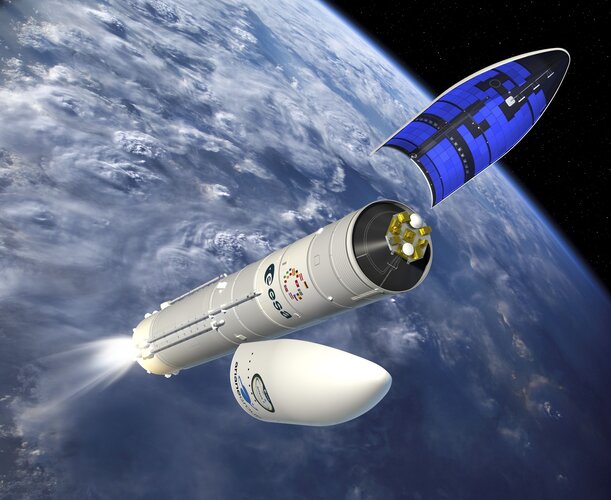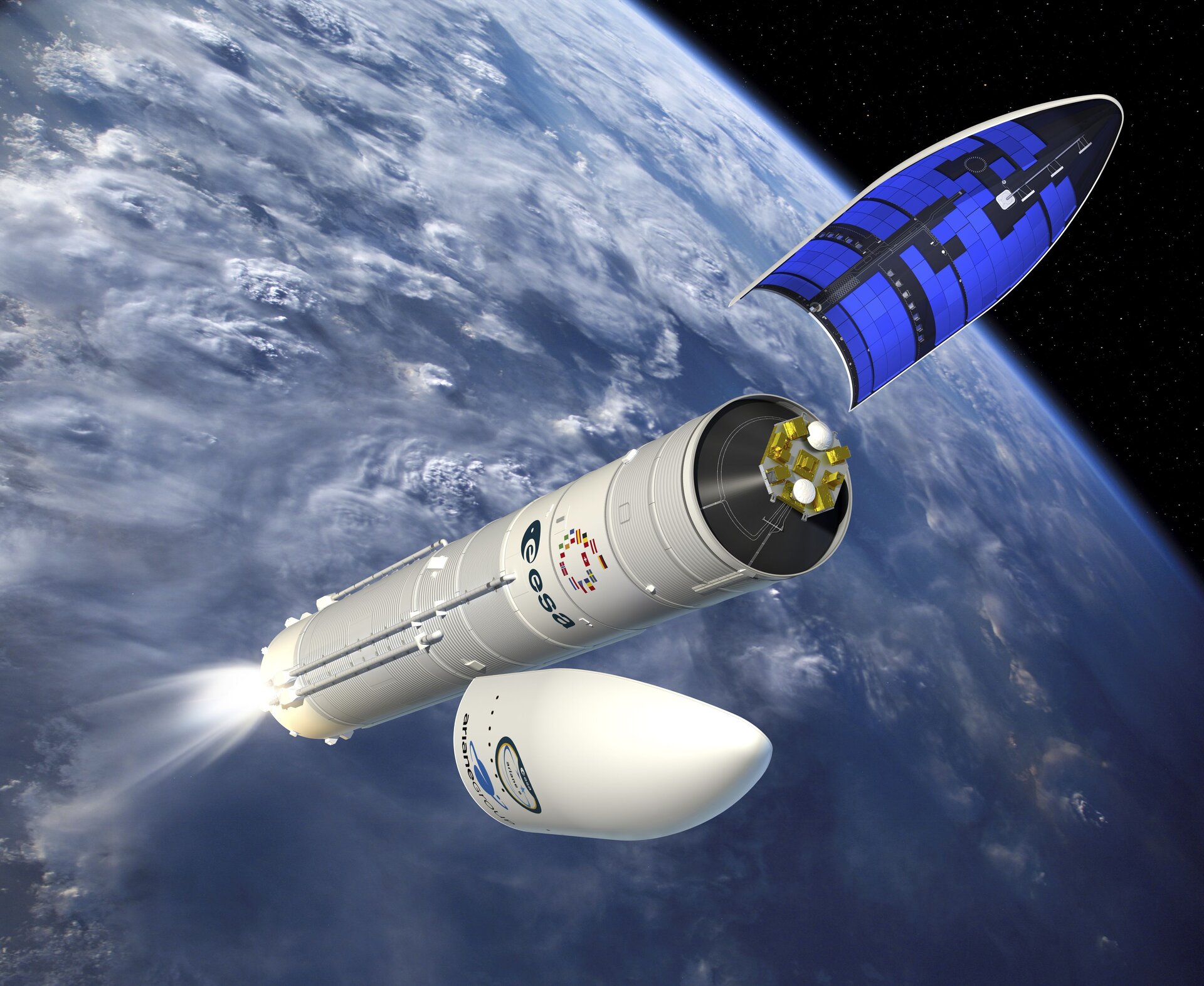Ariane 6 Fairing Separation

 Image:
Image:
Artist's view of the Ariane 6 rocket on it’s first flight as its fairing – a nose cone that splits into two vertically – showing its passengers at the top of the launcher. The view shows Ariane 6 already three minutes into launch after Ariane 6 will have jettisoned its two boosters after liftoff from Europe's Spaceport in Kourou, French Guiana.
The passengers Ariane 6 will launch into space on its inaugural flight include several satellites, deployers and experiments from space agencies, companies, research institutes, universities and young professionals on its first flight.
From established players like NASA to students designing their first ever satellite, these missions will measure gamma rays, track wildlife, test self-healing solar cells, confirm the theory of black body radiation and more. There's a smart-farming satellite, a radio beacon demonstrator, experiments that will remain attached to the rocket's payload ‘adaptor’ and even capsules destined to reenter Earth’s atmosphere to test new materials – Ariane 6’s first flight will be packed with technology as its first payloads are sent on their way into space.
This plethora of missions is being supplied by three types of organisations: commercial companies, space agencies and universities. Together they have been building hardware to test and prove their technology works in space; satellites to measure weather on Earth or in the Solar System; study the Sun and perform other science experiments.
The new heavy-lift rocket Ariane 6 has been designed for all possible futures, and at its core is maximum versatility. Ariane 6 can put any satellite or payload into any orbital path. This is made possible with the new restartable Vinci engine that will power up the Ariane 6 upper stage again and again, stopping and starting to insert spacecraft into any orbit they need to be. The launcher stores enough fuel for a final burn, once its passengers are deployed, to deorbit and reenter safely back through Earth’s atmosphere.
#launchers #space #science #esa #europeanspaceagency
posted by pod_feeder_v2

There are no comments yet.